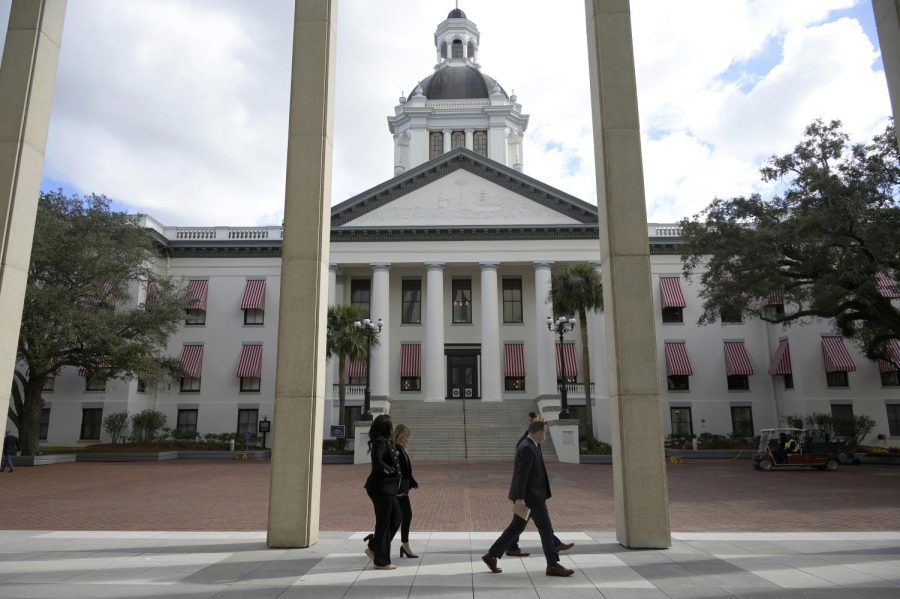DeSantis and Senators Back Several Controversial Bills
AP Images/Phelan
Florida lawmakers are busy at work presenting several controversial bill that will change what educators can teach and how they teach.
March 10, 2022
With the advancement of 2022, the Florida legislature has been working to pass two controversial bills.
In January, a bill backed by Republican Gov. Ron DeSantis that would prohibit Florida’s public schools and private businesses from making people feel “discomfort” or “guilt” based on their race, sex or national origin received first approval by the state’s Senate Education Committee.
“[The bill] makes clear that no Floridian — student, worker, or anyone else — should be subjected to discriminatory content and rhetoric,” wrote DeSantis’ press secretary Christina Pushaw.
The Republican-controlled committee approved the bill with six Republican senators in favor of the bill and three Democratic senators opposed to it.
Although the bill, named “Individual Freedom,” does not mention Critical Race Theory, the term is used in the attached bill analysis that was given to senators.
The legislation would prohibit individuals from making people “feel discomfort, guilt, anguish, or any other form of psychological distress on account of his or her race, color, sex, or national origin.”
It would also prohibit employers from providing training or instruction that “espouses, promotes, advances, inculcates, or compels” individuals to believe “that an individual bears responsibility for, or should be discriminated against or receive adverse treatment because of actions committed in the past by other members of the same race, color, sex or national origin.”
Instructors would be able to address topics of sexism, slavery, racial oppression, racial segregation, racial discrimination in an age-appropriate manner.
However, the bill states that “classroom instruction and curriculum may not be used to indoctrinate or persuade students to a particular point of view inconsistent with the principles of this subsection or state academic standards.”
Following this bill, on Feb. 17, a Florida committee advanced a new amendment to Florida’s “Parental Rights in Education” bill, also dubbed as the “Don’t Say Gay” bill, which would restrict discussions of sexual orientation and gender identity in schools.
The bill would ban discussing these issues in primary schools and restrict how they are discussed in other grades if they are deemed “not age-inappropriate.” However, it does not specify what would be considered age-appropriate, or who decides.
The bill would also require school personnel to notify parents of changes in a student’s physical, mental, or emotional health.
It would significantly limit the ability of counselors and teachers to be a confidential resource for students, including LGBT students who may not feel safe or comfortable asking questions about sexual orientation or gender identity to family members.
The amendment notes the school must facilitate the meeting in a way that “protects the mental, emotional, and physical well-being of the student.” The amendment does not, however, elaborate as to what that setup might look like.
President Joe Biden publicly denounced the original legislation in a tweet on February 8, 2022, after Florida Gov. Ron DeSantis signaled his support for the bill.




















